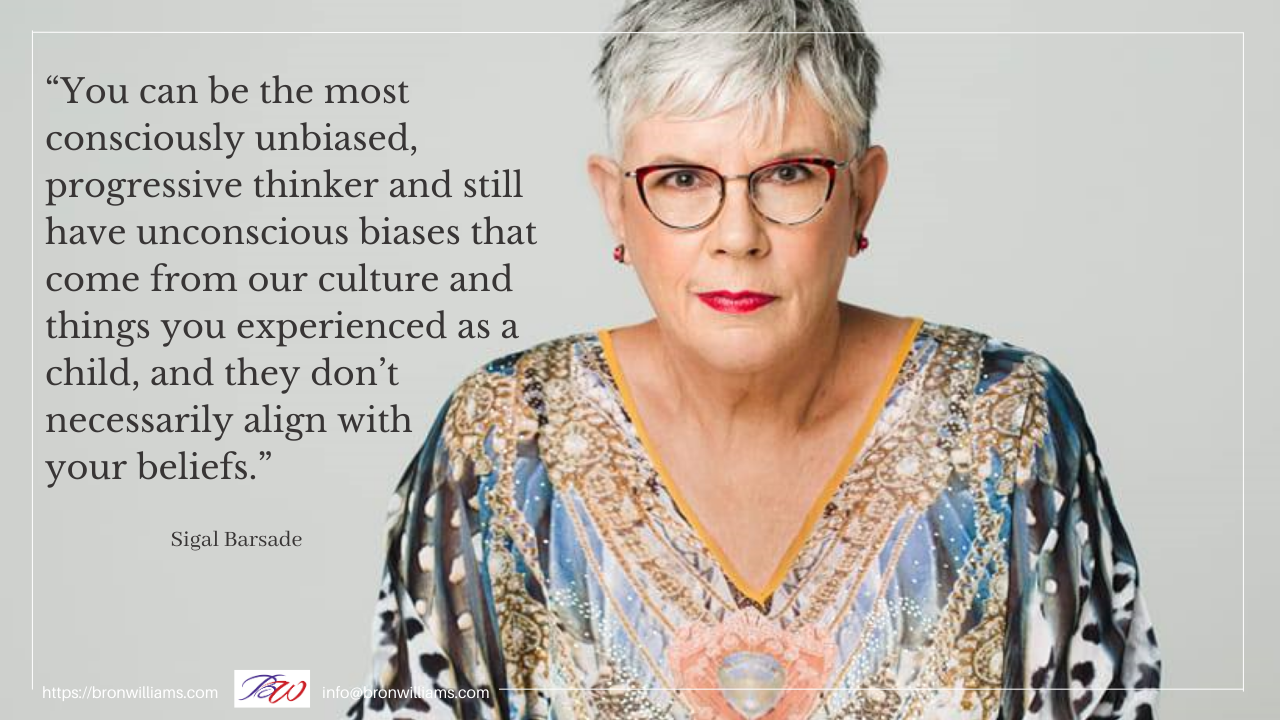Embracing the Paradox
Navigating Unconscious Bias and Values

In the intricate tapestry of human cognition, lies a fascinating paradox—one that often eludes our conscious awareness but profoundly influences our perceptions, decisions, and interactions. Sigal Barsade, a former management professor at the University of Pennsylvania, eloquently sheds light on this paradox, noting that . “You can be the most consciously unbiased, progressive thinker and still have unconscious biases that come from our culture and things you experienced as a child, and they don’t necessarily align with your beliefs.”
At first glance, it may seem contradictory to believe in and uphold strong principles while simultaneously harbouring unconscious biases. Yet, as Barsade points out, these two facets of our psyche operate in tandem, often diverging and converging in unexpected ways. Our conscious mind, guided by our principles and beliefs, serves as our moral compass. Meanwhile, lurking beneath the surface, lie the remnants of our past—the ingrained biases, shaped by childhood experiences, societal messaging, and cultural norms.
This revelation offers both hope and enlightenment. It dispels the notion of moral absolutism, acknowledging the complexity of human cognition and the inherent duality of our nature. We are not merely creatures of unwavering virtue or irredeemable prejudice; rather, we are beings suspended between two realms, navigating the delicate balance between conscious intent and subconscious influence.
Understanding this paradox is liberating. It empowers us to unravel the intricacies of our own minds, peeling back the layers of conditioning and societal indoctrination to reveal the core of our authentic selves. By recognising the coexistence of our values and biases, we transcend the confines of self-delusion and embrace a more nuanced perspective of our humanity.
However, the journey towards self-awareness is not without its challenges. It requires a willingness to confront the uncomfortable truths lurking within the recesses of our minds, to interrogate our beliefs and behaviours with real honesty. Yet, it is only through this introspection that we can begin to dismantle the barriers erected by unconscious bias and forge genuine connections based on mutual understanding and empathy.
More than this, acknowledging our biases does not diminish the validity of our values, nor does it condemn us to moral bankruptcy. On the contrary, it invites us to engage in a profound act of self-reflection, to discern whether our actions align with the principles we hold dear or are unwittingly influenced by hidden prejudices.
As we look deeper with, we must do so with both compassion and curiosity, recognising that growth often emerges from discomfort and uncertainty. By embracing the paradox of our humanity, we transcend the limitations of binary thinking and embrace the richness of our complex and often complicated identities.
In the end, it is not our biases that define us but rather our willingness to confront them with courage and integrity. Armed with self-awareness and a commitment to authenticity, we navigate the intricate dance between conscious values and unconscious biases, forging a path towards greater understanding, empathy, and connection.